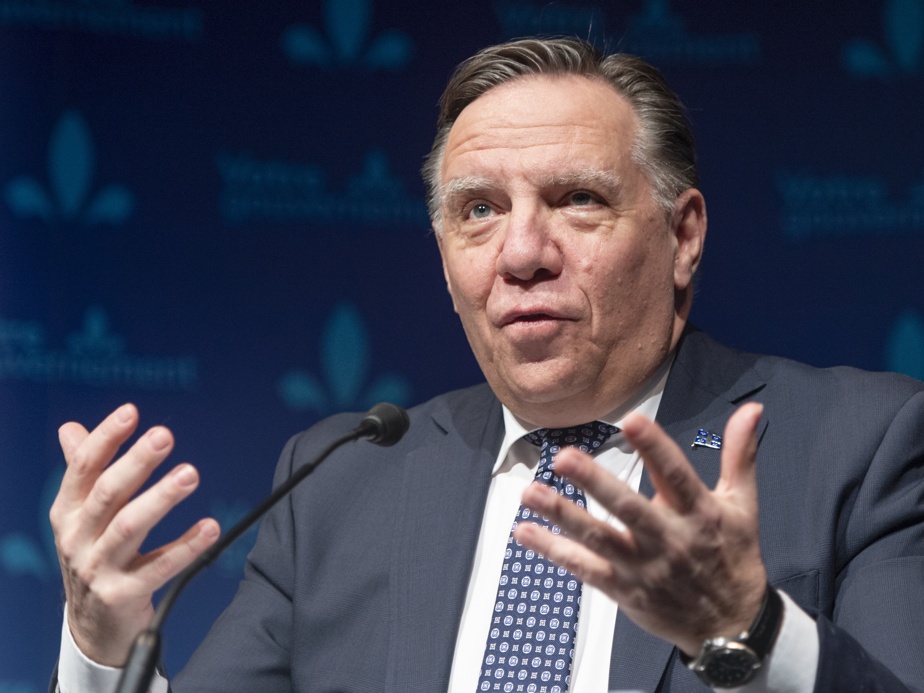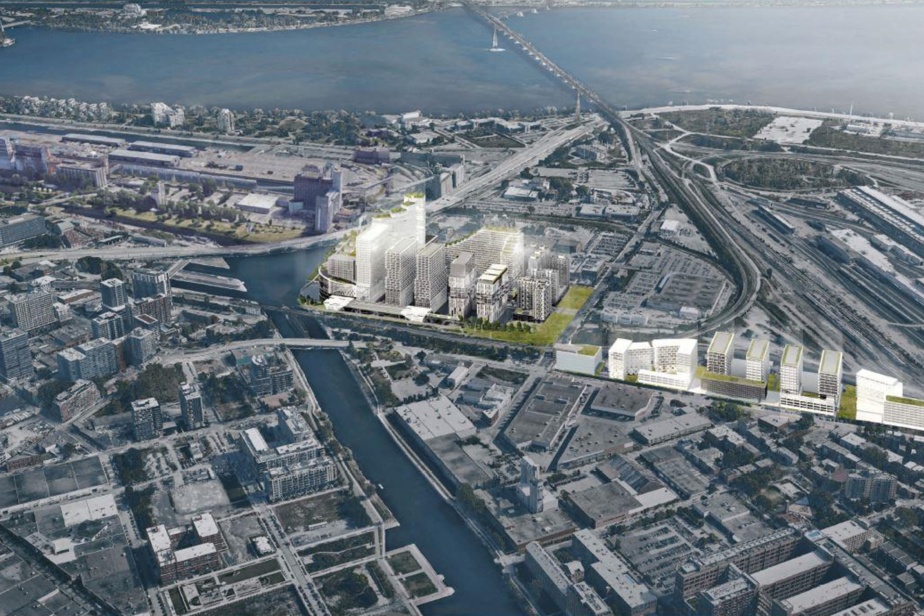The Legault government has opened the door to funding a new baseball stadium to match Quebec taxes paid by future Expos-Rays players. However, that would be around $ 4.25 million annually, according to calculations Journalism.
Stephen Bronfman’s group proposes building a new baseball stadium on the Peel Basin to bring in a timeshare team between Tampa Bay and Montreal, but they are asking Quebec for a “financial contribution” to build the stadium. Mr. Bronfman’s group and Legault’s government did not specify the amount requested.
“If, tomorrow morning, there is a baseball team in Quebec, the players will pay taxes in Quebec, taxes that we will not have.” [sans équipe]. So, if we take a portion of that tax revenue and then give it to a company that brings us that business, everyone wins. […] We must ensure that Quebec will receive more sub-benefits, and thus real tax returns, than the amount of assistance that will be provided to [cette] Quebec Prime Minister Francois Legault said at a news conference last Tuesday. Talk about a five-year horizon for doing the grant / tax calculation.

RYAN REMIORZ photo, Canadian Press Archive
François Legault, Prime Minister of Quebec
Over five years, Expos-Rays players will pay $ 21.2 million in taxes to the Quebec government, given a total salary of $ 75 million in Canadian dollars for each season.
If the project succeeds, then Expos-Rays players, who will spend three-quarters of their season outside Quebec, will likely be considered non-Quebec residents for tax purposes. They will only pay Quebec tax on their wages in proportion to the days they spend in Quebec during the season, she confirmed to Journalism Two professors in tax law, Annick Provencer (University of Montreal) and Khashyar Hagoyan (University of Laval).
Unless you choose to be a tax resident of Quebec, players will be taxed [au Québec] “Only when they’re here to do their job,” says Annick Provencer, professor of tax law at the University of Montreal.
Strong incentive for players to be Florida tax residents: No state income tax. Thus Florida residents have the lowest tax rate in the United States (37%, the federal rate), while Montreal is the main destination for baseball with the highest tax rate (53%).
For the 2019 season, Expos-Rays would have spent 22% of its season in Montreal (42 days out of 187), according to our calculations. For tax purposes, players will be considered to have earned 22% of their salary in Quebec.
In 2021, Rays’ salaries are $ 56.5 million, or CAD $ 71 million. With a payroll of 75 million Canadians, we got taxes of $ 4.25 million a year in Quebec for Expos-Rays Players. They would also pay federal taxes of $ 4.55 million annually to the government of Canada.
Mr. Bronfman’s group has never publicly assessed the economic and financial benefits of the timeshare baseball team project. He did not want to comment on that.
No taxes in Quebec for opponents
On the fiscal front, Expos-Rays opponents will not be profitable to the Quebec government. Both Quebec and Ottawa do not tax professional athletes from foreign sports teams on income earned during their stay in Quebec or Canada.
In its discussions with Quebec, the Montreal Group could also try to confirm the taxes the baseball team pays on their earnings in Canada, and pay QST on match tickets in Montreal.
For corporate taxes, Rays made an average annual profit of $ 40 million CAD per year between 2015 and 2019, according to Forbes. With 50% of that dividend to a company that will pay its taxes in Quebec, we arrive at a corporate tax of 2.3 million per year in Quebec. In contrast, if the team loses money – as it did in 2020 due to the pandemic, according to Forbes –Canadian owners can probably deduct losses from their other businesses.
For QST on baseball tickets, using data from a 2013 study commissioned by Mr. Bronfman (41 matches with 37,281 spectators at $ 33.10 per ticket), revenues would be approximately 3.7 million annually in Quebec.
Almost unanimously, economists believe that the baseball team brings very little real economic benefit: it instead displaces the city’s residents’ money, as it draws its income from the city’s consumer budget from one activity to the next. For example, the QST would have been collected on a baseball ticket anyway on other items purchased in Quebec.

“Subtly charming problem solver. Extreme tv enthusiast. Web scholar. Evil beer expert. Music nerd. Food junkie.”



